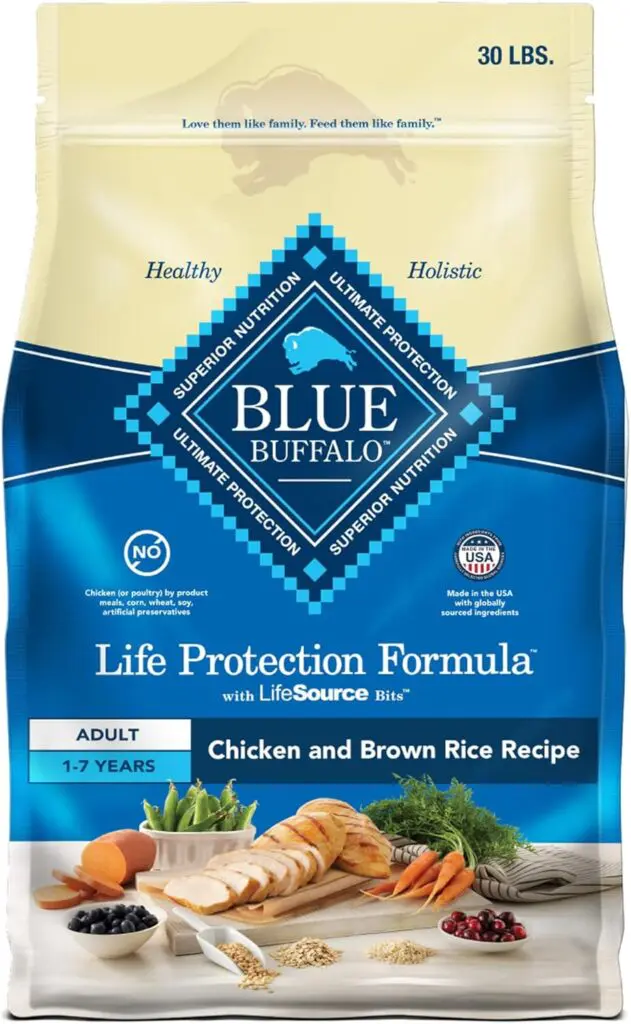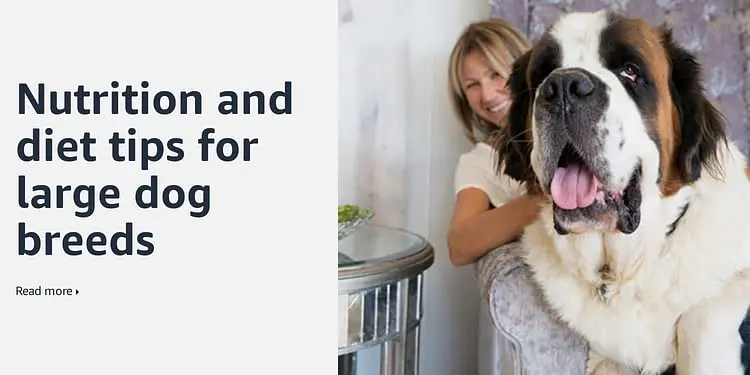When it comes to large dog breeds, selecting the right food is essential for their health and well-being. The best dog foods are formulated to meet their unique nutritional needs, ensuring they grow strong and stay active. In this guide, we’ll explore the key factors to consider when choosing the best dog foods for large breeds, from essential nutrients to special dietary considerations.
Understanding the Nutritional Needs of Large Dogs
Large dog breeds, such as Great Danes, German Shepherds, and Golden Retrievers, have distinct dietary requirements compared to smaller breeds. Their size and activity level demand specific nutrients to support joint health, muscle development, and overall vitality.
Key Nutrients for Large Dog Breeds:
- Protein: Essential for muscle growth and repair. Look for high-quality sources like chicken, beef, or fish.
- Calcium and Phosphorus: Important for bone development, especially in puppies.
- Glucosamine and Chondroitin: Supports joint health, reducing the risk of arthritis and joint issues.
- Omega-3 and Omega-6 Fatty Acids: Promote a healthy coat and skin, and support cognitive function.
Choosing the Best Dog Foods for Large Breeds
When selecting the best dog foods, it’s crucial to consider the life stage of your dog. Puppies, adults, and seniors have different nutritional needs.

Puppy Food:
- Higher Caloric Needs: Large breed puppies require more calories but need to grow at a controlled rate to prevent joint issues.
- Balanced Calcium and Phosphorus: Proper ratios are vital to prevent developmental bone disorders.
Adult Food:
- Moderate Protein and Fat: Supports maintaining an ideal weight and muscle mass.
- Joint Support: Foods enriched with glucosamine and chondroitin are beneficial for maintaining joint health.
Senior Food:
- Lower Caloric Density: Helps prevent obesity as activity levels decrease.
- Antioxidants and Fiber: Supports immune health and digestion.
Special Considerations for Large Dog Diets
Large breeds are prone to certain health conditions that can be managed or prevented with proper nutrition.
Avoiding Bloat:
- Multiple Smaller Meals: Feeding smaller meals throughout the day can reduce the risk of gastric torsion (bloat).
- Avoiding High-Fat Foods: High-fat content can increase the risk of bloat. Opt for balanced fat levels in the diet.

Weight Management:
- Calorie Control: Large breeds are prone to obesity, which can lead to joint issues and other health problems. Choose foods with appropriate caloric content.
- Exercise: Regular exercise, combined with a balanced diet, is crucial for maintaining a healthy weight.
Top Recommendations for the Best Dog Foods for Large Breeds
- High-Quality Ingredients: Look for dog foods with real meat as the first ingredient, avoiding fillers like corn, wheat, and soy.
- Special Formulas: Consider large breed-specific formulas that address unique nutritional needs, such as joint support and weight management.
- Consult Your Veterinarian: Always consult your veterinarian when choosing the best dog foods for your large dog breed, especially if your pet has specific health concerns.
Conclusion
Choosing the best dog foods for your large breed is a crucial part of ensuring their long-term health and happiness. By understanding the unique nutritional needs of large dogs and selecting high-quality, nutritionally balanced foods, you can support your dog’s growth, vitality, and overall well-being. Always prioritize quality ingredients and consult with your veterinarian to provide the best care for your furry friend.





















